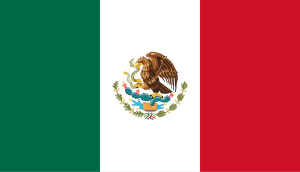North American auto assemblies slipped in September
North American auto assemblies declined in September, down 5.1% vs. August. And assemblies were also down 1% year on year.
North American auto assemblies declined in September, down 5.1% vs. August. And assemblies were also down 1% year on year.

Our average HR coil price increased $5/short ton from last week, marking a second consecutive week of modest gains. Market participants generally attributed the increase to...

A former CEO goes to court for swiping tin. An OEM distributor slams the bankruptcy trustee for failing workers and creditors. The steelmaker fires back. Angry employees demand back pay as tensions rise in Monclova's steel saga.
Gerdau is repositioning its North American business to capitalize on a sharp shift in steel trade flows driven by elevated tariffs across the US, Canada, and Mexico.

Representatives of at least six companies interested in acquiring AHMSA have reportedly begun to carry out physical inspections of the insolvent company’s assets.

Jack Biegalski, former president and CEO of American Heavy Plates, has been named the new CEO of the Esmark Steel Group.

AHMSA is opening its doors to potential buyers to tour its steel plant and mining operations in northern Mexico in preparation for the next stage of its bankruptcy process: the auction of its assets.

Following a 3% decline in June, the amount of steel shipped outside of the US edged up 1% in July to 623,000 short tons. July was the sixth-lowest monthly export rate since the COVID-19 pandemic, and...

Mexico is considering imposing steep tariffs on imports of steel, automobiles, and over 1,400 other products. Its target? Countries with which it does not have free trade agreements, mainly China, India, Thailand, and other South Asian nations.
ArcelorMittal has partially restarted operations at its direct reduction plant in Lazaro Cardenas, Michoacan. An explosion on Aug. 18 rocked the massive steelworks on Mexico’s Pacific coast, impacting production of direct-reduced iron (DRI).
Ternium CEO Máximo Vedoya predicts that China is going to reduce its steel overcapacity.
Karla Lewis, president and CEO of Reliance Inc., told attendees of SMU’s Steel Summit 2025 that North America’s largest service center company is eyeing strategic opportunities in Mexico.
ArcelorMittal reported a "strong" explosion at the direct reduction part of its massive Lazaro Cardenas mill in Mexico.
North American auto assemblies declined in July, down 16.4% vs. August. But, according to GlobalData, assemblies were 2.4% ahead year on year (y/y).

The volume of steel shipped outside of the country in June fell 3% from the prior month to 618,000 short tons (st), according to recently released data from the US Department of Commerce.

Following January’s pre-tariff surge, imports have remained low since February compared to post-pandemic volumes

Truchas works in Lazaro Cadenas, Michoacan, western Mexico. Repairs may take up to six months.
Latin American steel producer Ternium delivered a solid performance in the second quarter of 2025. Performance was driven primarily by higher realized steel prices in Mexico, even as shipment volumes declined slightly across its regional portfolio.
North American auto assemblies declined in June, down 10.6% vs. May. And, according to GlobalData, assemblies were 3.1% down year on year (y/y).
Evraz NA and Welded Tube of Canada have lodged an unfair trade complaint against imports of OCTG, including those from USMCA trading partners Mexico and the US.

US steel exports rose 10% from April to May but remained low compared to recent years. This came just one month after exports fell to the lowest level recorded in nearly five years.
Could the US and Mexico end up with a tariff-rate quota system?
The actions, which includes tariffs, are necessary to protect the Canadian market from global overcapacity. They are also needed because other countries have redirected material to Canada as a result of higher US tariffs, Carney said.

Could we see an abrupt shift now that oil prices have spiked higher? Will we see a rebound in the rig count? Will this create a snap-loading effect (think waterski rope), where the industry suddenly does a 180-degree turn? If so, will that bring with it increased demand for steel products used by the energy industry?

Getting back to the price increases I mentioned at the top of this article, to what extent are they aimed at raising prices and to what extent are they aimed at stopping the bleeding that was happening in the second half of May, before President Trump announced the 50% tariff?

The Mexican government shut down two plants and warehouses operated by US-based LAU Industries.

Steel market participants learned that negotiations between the US and Mexico include discussions about Section 232 tariffs on steel and aluminum despite President Trump’s June 3 proclamation increasing the tariffs from 25% to 50% for all steel and aluminum imports—except for those from the UK.

Steel equities and steel futures fell hard after news broke earlier this week that the US and Mexico might reach an agreement that would result in the 50% Section 232 tariff coming off Mexican steel. The sharp declines didn’t make much sense, especially if, as some reports indicate, Mexico might agree to a fixed quota. They didn't make sense even if steel flows between the US and Mexico remain unchanged.

Even before the news about Mexico, I didn’t want to overstate the magnitude of the change in momentum. As far as we could tell, there hadn’t been a frenzy of new ordering following President Trump’s announcement of 50% Section 232 tariffs. But higher tariffs had unquestionably raised prices for imports, which typically provide the floor for domestic pricing. We’d heard, for example, that prices below $800 per short ton for hot-rolled (HR) coil were gone from the domestic market – even for larger buyers.

US steel exports totaled 579,000 short tons (st) in April, according to US Department of Commerce data. That's the lowest monthly volume recorded since July 2020.